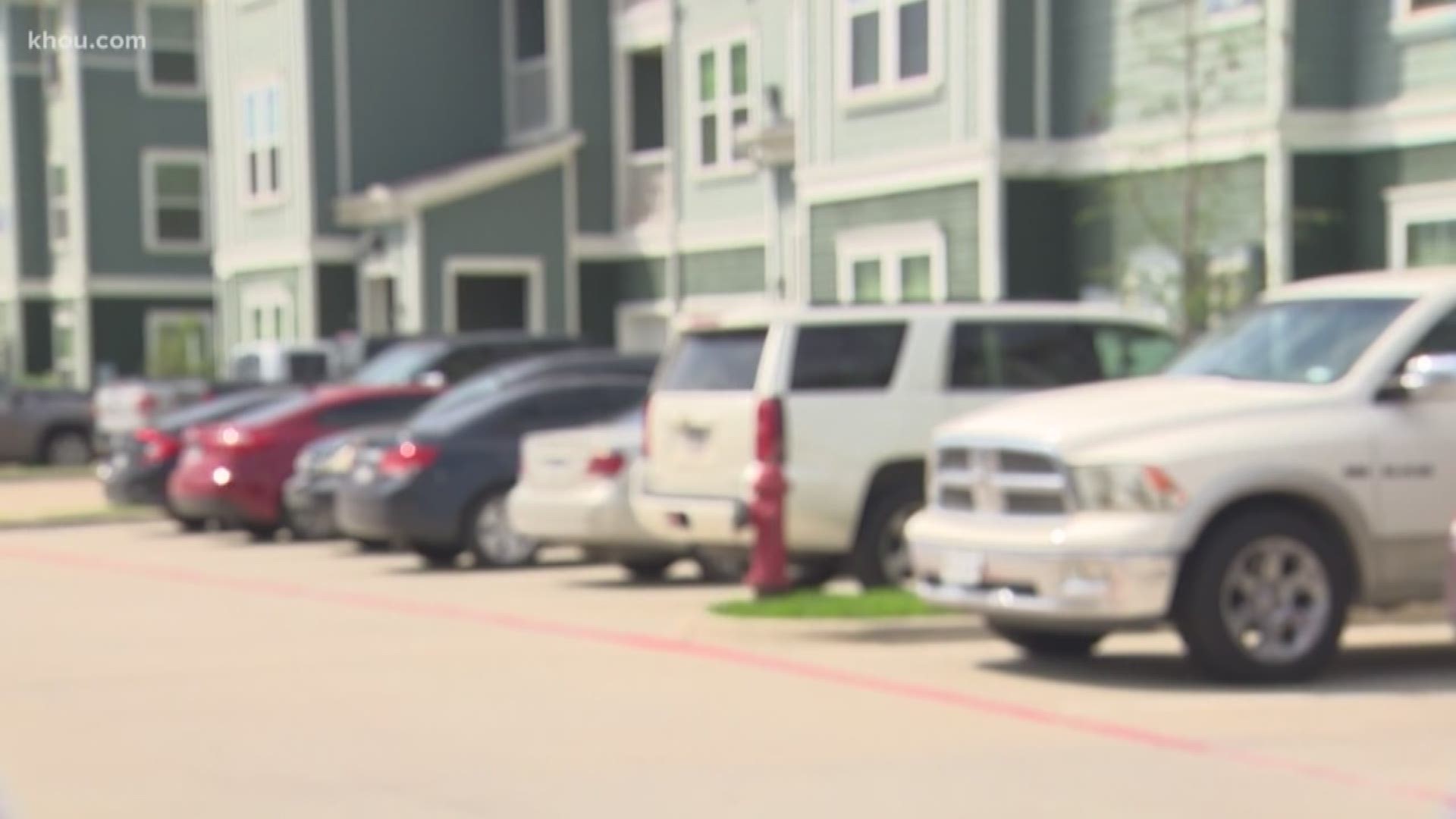HOUSTON — All travelers entering the state of Texas from Louisiana must self-quarantine for two weeks once they arrive to their destinations, per an executive order issued Sunday by Texas Gov. Greg Abbott.
It is the second travel order in one week by the governor which now expands the reach to include travelers entering Texas by land.
The explosion of confirmed COVID-19 cases and deaths in hotspots throughout the country may have led some to seek refuge in Texas.
RELATED: Coronavirus updates: President Trump extends social distancing guidelines amid COVID-19 pandemic
A Pearland-area resident told KHOU 11 she has seen a growing number of cars with out-of-state license plates showing up in her apartment complex’s parking lot.
“I’ve never seen so many,” said the woman, who did not want to be identified. “In the past, it may be one state that I would see for the entire complex area.”
Most of the vehicles in her complex’s parking lot on Sunday had Texas license plates but several do not.
There are now plates from Illinois, New Jersey and Louisiana.
“I know those are hot states right now that’re getting a lot of COVID-19 cases at this time, so in my opinion, if they’re coming over for a safe haven, they may be bringing more than they think they are,” she said.
Travelers from outside of Texas take advantage of the bathrooms at a public rest stop along I-10 West in Chambers County.
One woman told KHOU 11 she and her family are fleeing Alabama where she said her town is experiencing an outbreak. They are in Texas to stay with family until things are healthy enough for them to return.
Others at the rest stop include Texas residents returning from trips to Louisiana over the weekend.
A Houston woman stopped to take her dog for a bathroom break. She was with her parents in Morgan City, La. since Friday and was on her way back home.
“It was just to see them and make sure everything was OK with them and go back,” the woman said.
Per the governor’s executive order, the woman and anyone else driving into Texas from Louisiana must self-quarantine for two weeks once they get to their Texas destinations.
Their whereabouts will be monitored by Texas Department of Public Safety officers.
Travelers could face criminal prosecution if they are caught breaking the requirements of the self quarantines.
Coronavirus symptoms
The symptoms of coronavirus can be similar to the flu or a bad cold. Symptoms include a fever, cough and shortness of breath, according to the Centers for Disease Control. Some patients also have nausea, body aches, headaches and stomach issues. Losing your sense of taste and/or smell can also be an early warning sign.
Most healthy people will have mild symptoms. A study of more than 72,000 patients by the Centers for Disease Control in China showed 80 percent of the cases there were mild.
But infections can cause pneumonia, severe acute respiratory syndrome, kidney failure and even death, according to the World Health Organization. Older people with underlying health conditions are most at risk for becoming seriously ill. However, U.S. experts are seeing a significant number of younger people being hospitalized, including some in ICU.
The CDC believes symptoms may appear anywhere from two to 14 days after being exposed.
Human coronaviruses are usually spread through...
- The air by coughing or sneezing
- Close personal contact, such as touching or shaking hands
- Touching an object or surface with the virus on it, then touching your mouth, nose or eyes before washing your hands.
Help stop the spread of coronavirus
- Stay home when you are sick.
- Eat and sleep separately from your family members
- Use different utensils and dishes
- Cover your cough or sneeze with your arm, not your hand.
- If you use a tissue, throw it in the trash.
- Follow social distancing
Lower your risk
- Wash your hands often with soap and water for at least 20 seconds. If soap and water are not available, use an alcohol-based hand sanitizer.
- Avoid touching your eyes, nose, and mouth with unwashed hands.
- Avoid close contact with people who are sick.
- Clean and disinfect frequently touched objects and surfaces.
- If you are 60 or over and have an underlying health condition such as cardiovascular disease, diabetes or respiratory illnesses like asthma or COPD, the World Health Organization advises you to try to avoid crowds or places where you might interact with people who are sick.
Get complete coverage of the coronavirus by texting 'FACTS' to 713-526-1111.

